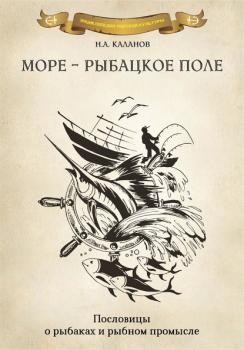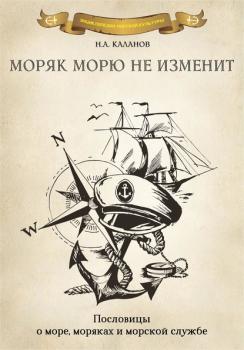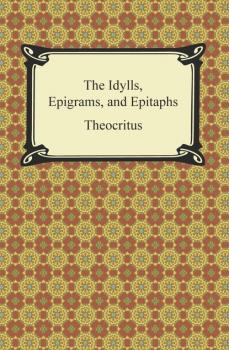ТОП просматриваемых книг сайта:
Старинная литература: прочее
Различные книги в жанре Старинная литература: прочее, доступные для чтения и скачиванияМоре – рыбацкое поле. Пословицы о рыбаках и морском промысле - Николай Каланов
Энциклопедия морской культурыАннотация
«Рыбак рыбака видит издалека» – это самая известная и популярная пословица о любителях рыбной ловли. Главный смысл её в том, что во всем мире русский рыбак поймет без переводчика японского собрата, англичанин – якута, стоит им только обратиться к любимому делу – рыбалке, рыболовному промыслу. Сборник «Море – рыбацкое поле. Пословицы о рыбаках и морском промысле» – это редкая книга, соединяющая в себе и «жемчужины народной мудрости» и профессиональные советы. Можно с уверенностью сказать, что перед вами энциклопедия рыбацкого жизненного опыта и житейской философии, чтение которой не только увлекательное занятие, но и получение новых знаний для «пахарей рыбацкого поля».
В формате PDF A4 сохранен издательский макет.
Моряк морю не изменит. Пословицы о море, моряках и морской службе - Николай Каланов
Энциклопедия морской культурыАннотация
Пословиц и поговорок о море, моряках и флотской службе, без всякого преувеличения, море. В изумительных и по содержанию и по форме творениях народного гения отражены буквально все стороны морской деятельности и жизни человека, его взаимоотношений с природной стихией. Можно сказать, в своей сумме пословицы и поговорки – это подлинная энциклопедия накопленных тысячелетиями людских знаний о море.
Данный сборник пословиц и поговорок о море, моряках и морской службе по своему объему и содержанию претендует быть первым изданием такого рода не только в отечественной, но и мировой маринистической и фольклористической литературе.
В формате PDF A4 сохранен издательский макет.
Аннотация
Аннотация
Книгу составили две работы, посвященные дохристианским мифам и языческой религии балтских племен – пруссов, балтов, жемайтов и др. Они написаны в XIX столетии, и, конечно, в них встречается устаревшая информация. Но они по-прежнему представляют значительный интерес как по причине малой известности темы, так и (что главное) в силу глубинного родства балтийской и славянской мифологий.
Информация о книге
Автор произведения Анатолий Мержинский
Жанр Старинная литература: прочее
Серия Неведомая Русь
Аннотация
Из обширного наследия пословиц и поговорок народов мира были отобраны более 2000 высказываний, интересных с точки зрения воспитания правильного отношения к деньгам, заработку, сбережению и расходам. В них вывод, позиция, умозаключение, народная мудрость, лаконичный жизненный совет человеку, принимающему финансовое решение. В них и некий свод правил, способный стать основой финансовой культуры человека. Особенность сборника заключается в том, что пословицы и поговорки о деньгах систематизированы в нем не по алфавиту, а по смыслам, ключевым информационным посланиям.
Аннотация
Владимир Сорокин начал записывать русские пословицы и поговорки еще в середине восьмидесятых, следуя примеру великих предшественников. Но писатель черпал их не из фольклорных экспедиций, а из глубины созданного им самим русского мира. Того мира, внутри которого возможна фантастическая и в то же время такая узнаваемая реальность “Метели” и “Теллурии”. Сохраняя интонацию и строй народной речи, автор населяет ее сказочными персонажами, наполняет новыми понятиями и словами. Это русское зазеркалье живет по своим законам и правилам, самая абсурдность которых подчинена строгой логике.
Содержит нецензурную брань.
Аннотация
“The Study of Imagination” is a brand new collection of classic essays written by various authors on the subject of fairy tales, mythology, and folk-Lore. Contents include: “Fairy Tales, by G. K. Chesterton”, “The Fantastic Imagination, by George Macdonald”, “The Worth of Fairy Tales, by Laura F. Kready”, “Storyology, by Benjamin Taylor”, “A Harvest of Irish Folk-Lore, by John Fiske”, “On the Philosophy of Mythology, by F. Max Müller”, “Folk-Lore of the Northern Counties, by William Henderson”, “The Science of Folk-Lore, by Edwin Sidney Hartland”, “The Modern Origin of Fairy-Tales, by Moses Gaster”, etc. These fascinating essays will appeal to all with a love of fantasy and folklore, and they are not to be missed by collectors of allied literature. Read & Co. Great Essays is publishing this brand new collection of classic essays now for the enjoyment of a new generation of readers.
Аннотация
First published in 1892, this vintage book looks at religious, mystical, and mythological influences on architecture throughout history and from all over the world, exploring in detail similarities, design, purpose, and much more. Profusely illustrated throughout, “Architecture, Mysticism and Myth” will appeal to those with an interest in religious architecture and would make for a worthy addition to any collection. Contents include: “The World Fabric”, “The Microcosmos”, “Four Square”, “At the Centre of the Earth”, “The Planetary Spheres”, “The Labyrinth”, “The Golden Gate of the Sun”, “Pavements like the Sea”, “Ceilings like the Sky”, “The Windows of Heaven and Three Hundred and Sixty Days”, and “The Symbol of Creation”. Many vintage books such as this are becoming increasingly scarce and expensive. It is with this in mind that we are republishing this volume now in an affordable, modern, high-quality edition complete with the original text and artwork.
Аннотация
Theocritus of Syracuse (born c. 300 BCE,—died after 260 BCE) is remembered as the creator of ancient Greek bucolic poetry, though little is known of his life outside of his writings. He was probably born in Syracuse, in Italy, and lived for a time in Alexandria when he gained the patronage of Ptolemy Philadelphus. This lyric and pastoral poet wrote what was termed eidyllia («idylls»), which means «little poems,» that reflected the love he felt for his homeland. Theocritus was quite innovative, drawing themes and techniques from epic, archaic lyric, New Comedy and mime genres, often blurring the lines between cultural divisions. This edition contains the idylls, epigrams and epitaphs of Theocritus, which include his most famous stories about Daphnis, the mythological shepherd who died of unrequited love, and Cyclops, as well as poems to Hiero and Ptolemy. His poetry influenced such writers as Moschus of Syracuse, Virgil, John Milton and Percy Bysshe Shelley.
Аннотация
Greek poet Hesiod, who lived sometime during the 8th and 7th century B.C., is regarded as one the most important poets of classical antiquity. What little is known of him largely comes from his own epic poetry, in which he unconventionally inserted details of his life. Only three of his works, the “Theogony,” “Works and Days,” and the “Shield of Heracles” survive to this day in their entirety. The “Theogony” is a foundational work of Greek mythology which concerns the creation of the world and the origins and genealogies of the Greek gods. In synthesizing the variety of local Greek traditions concerning the gods into a single narrative, Hesiod’s “Theogony” would give uniformity to his culture’s myths in a way that would be highly influential. Also included in this volume is Hesiod’s “Works and Days,” in which the poet argues that labor is a fundamental condition of human existence and to those who are willing to work success will most surely be achieved. A treatise on the virtue of hard work, “Works and Days” is a didactic poem addressed to his brother Perses, who has squandered his inheritance, and who through bribery has deprived Hesiod of part of his own patrimony. Lastly in this volume is the “Shield of Heracles” a work which details the conflict between the mythological figures of Heracles and Cycnus. This edition follows the translations of Hugh G. Evelyn-White.










